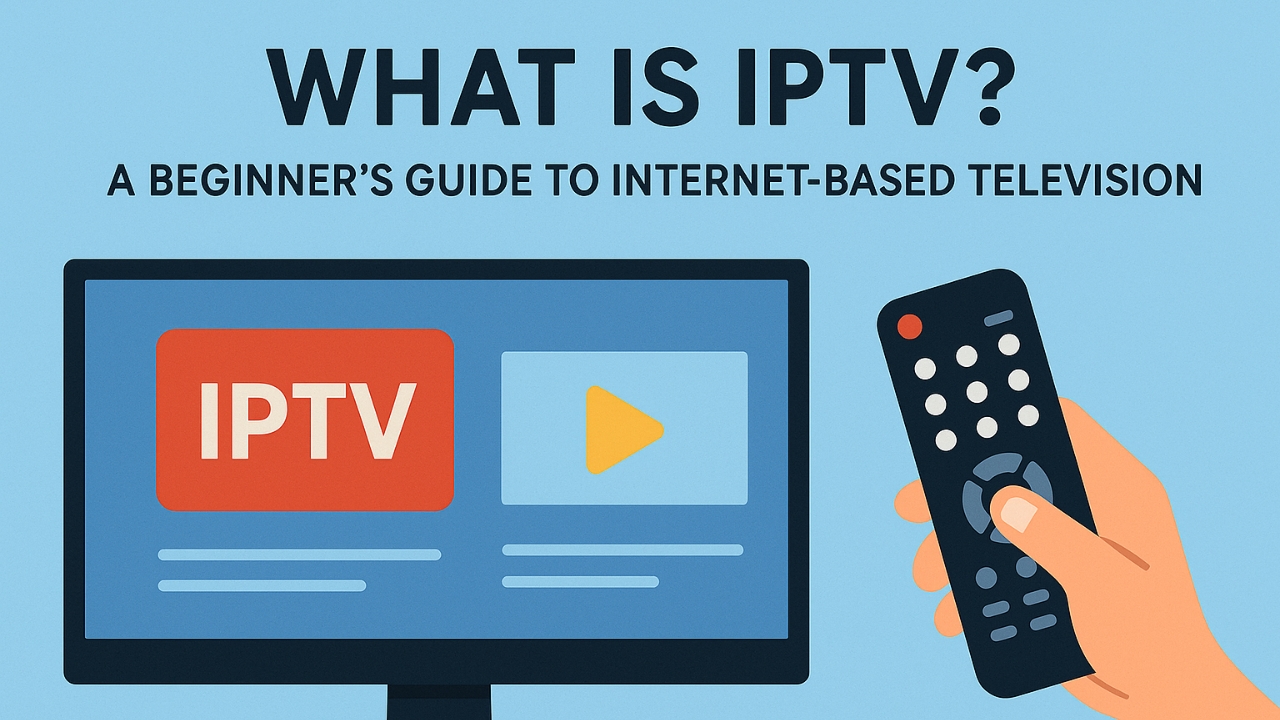
In the ever-evolving landscape of digital entertainment, I P TV (Internet Protocol Television) has emerged as a game-changer, offering viewers an alternative to traditional cable and satellite television. With its growing popularity, Internet-Based Television is transforming the way we consume content, making it more accessible, flexible, and affordable. Whether you’re looking to ditch your cable subscription or explore a new way of watching TV, this guide will walk you through everything you need to know about I P TV and its role in the future of television.
I P TV, or Internet Protocol Television, is a system that delivers television content through the internet, rather than using traditional methods like satellite or cable signals. It works by sending television signals via the same protocol that powers the internet, allowing viewers to access content over broadband connections. Essentially, I P TV turns your internet connection into a medium for watching live TV shows, movies, and other video content.
With Internet-Based Television, content is transmitted in the form of digital packets over the internet, enabling users to watch television programming on a variety of devices, including smart TVs, smartphones, tablets, laptops, and even gaming consoles. This innovation is revolutionizing the way people access and consume television content.
Unlike traditional broadcasting methods, which use cables, satellites, or terrestrial signals to send TV signals, IPTV delivers content directly over the internet. Here’s a step-by-step breakdown of how it works:
In a nutshell, IPTV turns your internet connection into a source for streaming live and on-demand content.
IPTV has become increasingly popular due to the numerous benefits it offers. Here are some key advantages of switching to Internet-Based Television:
Unlike traditional cable, IPTV offers on-demand access, so you can watch your favorite shows or movies whenever you want. No need to wait for scheduled programming.
Many IPTV services are more affordable than traditional cable packages. Plus, with the flexibility to choose only the channels you want, you can avoid paying for unwanted content.
With Internet-Based Television, you can watch content on multiple devices, including smart TVs, laptops, smartphones, and tablets. This makes it easy to access your favorite shows on the go.
Most IPTV services offer HD and 4K streaming, ensuring high-quality viewing. The better your internet connection, the better the streaming experience.
With IPTV, you can access content from around the world, opening up a wide range of channels, movies, and shows that may not be available through traditional cable services.

There are different types of IPTV services available, catering to a wide range of viewer preferences. Some of the most common types include:
This service allows you to watch live television broadcasts just as you would with cable or satellite TV. It typically includes a range of channels like news, sports, and entertainment.
On-demand IPTV services let you watch movies, TV shows, and other content whenever you choose. This option is similar to services like Netflix and Hulu.
Catch-up services enable you to watch programs that have already aired on television. These services often offer a 7- or 30-day window to view content after it has aired.
Some IPTV services offer interactive features, allowing users to interact with the content, vote in polls, or access additional information about the programs they’re watching.
Setting up IPTV is a relatively simple process. Here’s a general step-by-step guide:
IPTV represents the future of television for several reasons:
You can watch IPTV on smart TVs, smartphones, tablets, laptops, and even gaming consoles, as long as they are connected to the internet.
While you don’t need a specialized internet connection, a high-speed broadband connection is recommended for smooth and uninterrupted streaming.
Yes, I P TV is legal as long as you subscribe to legitimate service providers. Ensure that your provider is licensed and authorized to distribute content.
Yes, one of the major advantages of Internet-Based Television is the ability to access global content, including channels from other countries.
No, IPTV works entirely through the internet, so there’s no need for traditional cable or satellite subscriptions.
In conclusion, IPTV is quickly changing the way we consume television content. With its many benefits, including flexibility, affordability, and global access, Internet-Based Television is set to redefine the entertainment industry. Whether you’re looking to ditch your cable provider or simply want a more convenient way to watch TV, IPTV offers a revolutionary alternative that’s changing television forever.